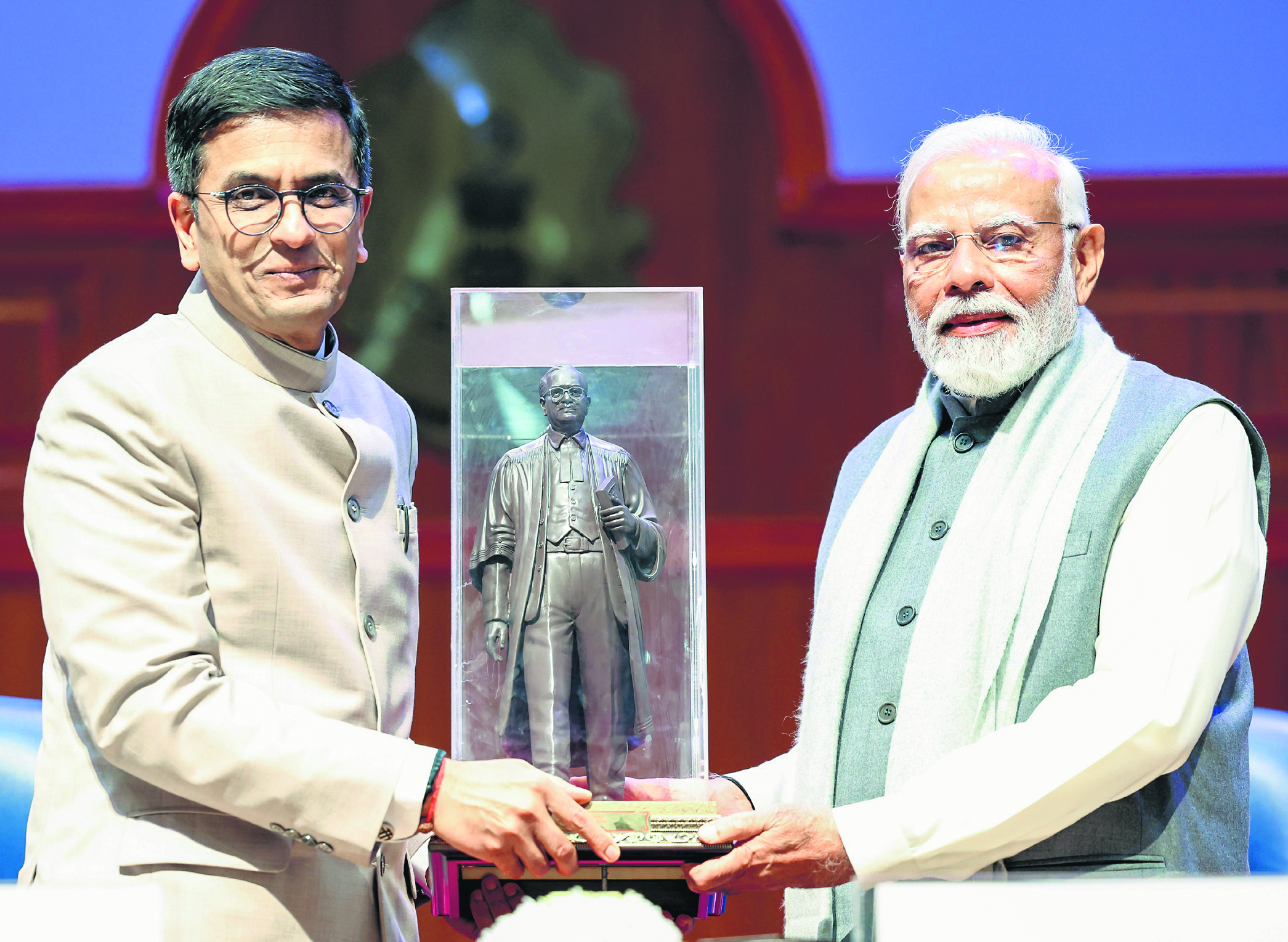Prime Minister Narendra Modi Sunday emphasised the pivotal role of a robust judicial system in the development of India. Speaking at the Diamond Jubilee celebrations of the Supreme Court, he highlighted the transformative shift in the country’s legal, policing, and investigative systems due to the replacement of three colonial-era criminal laws.
The Prime Minister underscored the significance of repealing the colonial-era criminal laws and introducing the Bharatiya Nagrik Surksha Sanhita, Bharatiya Nyay Sanhita, and Bharatiya Sakshya Adhiniyam. These changes marked a monumental shift, and PM Modi stressed the importance of a smooth transition from age-old laws to new ones. Acknowledging the necessity for training and capacity-building of government employees, he urged the Supreme Court to actively participate in such initiatives for all stakeholders.
The Bharatiya Nyaya Sanhita, Nagarik Suraksha Sanhita, and Bharatiya Sakshya Adhiniyam replaced the centuries-old Indian Penal Code (IPC), the Code of Criminal Procedure (CrPC), and Indian Evidence Act, respectively. These laws, passed during the Winter Session of Parliament and receiving President Droupadi Murmu’s assent on December 25 of the previous year, signified a monumental legal reform.
PM Modi emphasized that India, currently under global scrutiny, should capitalize on every opportunity. He identified priorities such as ease of living, ease of doing business, ease of travel, communication, and justice for the nation. Stressing the citizens’ entitlement to easy access to justice, he commended the Supreme Court as the primary channel for this purpose.
The Prime Minister disclosed that over Rs 7000 crore has been distributed by the Centre to enhance physical infrastructures in courts, with an additional allocation of Rs 800 crore for the expansion of the Supreme Court complex. He praised the Supreme Court for consistently reinforcing India’s vibrant democracy by safeguarding principles of freedom, equality, and justice.
Highlighting the court’s role in protecting individual rights, freedom of speech, and social justice, PM Modi noted the transformative decisions made over the past seven decades. He stated that every institution, organization, executive, and legislature in India is aligned with the goals of the next 25 years, resulting in significant reforms and shaping the foundation of a bright future for India.









